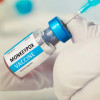 IJCP Editorial Team
IJCP Editorial Team
Pfizer-OPKO's Growth Hormone Treatment for Children Receives US Approval
In a momentous breakthrough, the treatment for growth hormone deficiency in children developed by Pfizer Inc and OPKO Health Inc has been granted approval by the US Food and Drug Administration (FDA). The announcement, made on Wednesday, marks a turnaround from the initial rejection by the FDA in January last year. The newly approved treatment, marketed under the brand name Ngenla, is an injectable hormone therapy designed for pediatric patients aged three years and older. With a monthly list price of approximately $8,300 for a child weighing 35 kg, the once-weekly injection aims to address growth hormone deficiency.
Pfizer has also taken steps to ease the financial burden on patients, offering benefits to reduce out-of-pocket costs and implementing assistance programs to enhance access to Ngenla. The treatment is expected to be available in the United States starting in August.
Growth hormone deficiency is a rare condition affecting approximately one in every 4,000 to 10,000 children. It is characterized by insufficient growth hormone secretion, leading to stunted height in adulthood and delayed puberty if left untreated. Traditionally, daily growth hormone injections have been the standard treatment. However, recent years have witnessed pharmaceutical companies focusing on long-acting growth hormone therapies to improve patient convenience.
Ngenla has already been approved for treating pediatric growth hormone deficiency in over 40 markets, including Canada, Japan, and various European countries.

IJCP Editorial Team
Comprising seasoned professionals and experts from the medical field, the IJCP editorial team is dedicated to delivering timely and accurate content and thriving to provide attention-grabbing information for the readers. What sets them apart are their diverse expertise, spanning academia, research, and clinical practice, and their dedication to upholding the highest standards of quality and integrity. With a wealth of experience and a commitment to excellence, the IJCP editorial team strives to provide valuable perspectives, the latest trends, and in-depth analyses across various medical domains, all in a way that keeps you interested and engaged.














Please login to comment on this article